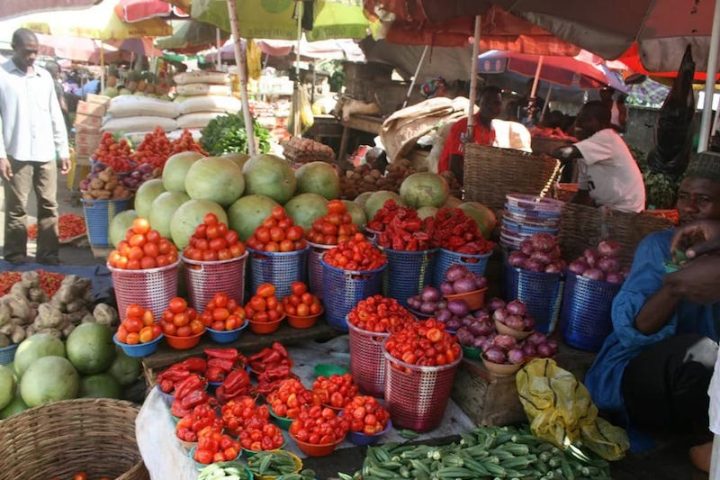The big issue then was inconcrete domiciliation and value addition, which we call local content or national content. The President, in those days, would usually, once in a while, give what he called mandate. And on this occasion he told me: Yes, the oil industry is doing very well. However, we are not able to link the spending in the industry with the economy; so, we need to get on to that.
Prime Business Africa’s correspondents, VICTOR EZEJA and DONATUS ANICHUKWUEZE, in this interaction, capture the views of former Group Managing Director (GMD) of the Nigeria National Petroleum Corporation (NNPC), Dr. Funsho Kupolokun on the policy actions taken to execute the national content initiative to create conducive environment for indigenous participation during the former President Olusegun Obasanjo administration, what Nigeria could do about regulatory systems as well as the revenue generation measures to adopt, given the global quest for transition from fossil fuel, among others.
An engineer, Kupolokun was also one of the guests at the Episode 24 of the National History Series, moderated by Prof. Pat Utomi, the Founder of the Centre for Values in Leadership (CVL) and Chairman of the Editorial Board of Prime Business Africa.
What were the policy choice issues in fast-tracking indigenous participation in the oil and gas sector with the reflection of how far we have travelled and the sense of what we could have done differently and what we managed to get right?
National content is something we have been having all along. However, the only difference is that it wasn’t in a structured manner. It was not structured. Before I go to the national content initiative, let me talk about marginal field. That was the first one we considered, to let people participate in the industry. We had always heard of Shell, Chevron and Mobil producing, let Nigerians also participate in production.
I am happy we have Layi Fatona there. We started the first programme, the bidding programme, in 2003. This went very well. 24 licences (were) issued and are producing producing. It wasn’t quite as successful as we had wanted, because (today) you see some of them taking one another to court.
Recently, like a year ago, the government decided to repeat the 2003-type exercise and they reviewed what we did in 2003; then, they took out some of the shortcomings and improved on it. They’ve gone to tender and the process is still going ahead; but, again, I guess, in a few years, we will see many more Nigerians participate in the industry through these two exercises.
I must say, you know this formal bidding exercise also has a few Nigerians that got into the industry. The first is Imo Isueli. Long ago, he started producing a small field, then Layi Fatona, with Niger Delta; they started producing, but these were small productions, and there were not many of them. But by 2003 we had the first round of formal bidding for such an exercise and that is on.
On National Content Policy
As I said earlier, national content (policy) is not something totally new; we have always had national content. However, the difference is that it wasn’t structured. When you look at the economy in 2003, or so, you would find out that there was no linkage between the economy and the industry spend. The industry gives revenue of close to 80 percent and then the spend I think, about 80 percent in the industry, but we were not able to see it being linked to the economy, because the linkage of the industry to the economy then was around 30 percent, which was very low. We now said: How and where is this coming from? The President, in those days, would usually, once in a while, give what he called mandate. And, on this occasion, he told me: Yes, the oil industry is doing very well. However, we are not able to link the spending in the industry with the economy; so, we need to get on to that. And that actually meant we were emphasising on spend. We were domesticating spend, rather than indigenization. It wasn’t indigenization.
I then said to myself, what does this mean? The first thing is to say, for GDP to grow, for you to impact it, there were three levers you can look at: One is attracting investment for growth. Oil production was doing very well at 35 billion barrels reserve and 2.5 million barrels a day. In fact, I remember that, in February 18, 2006, we did 2.6 million barrels a day. I think that’s the highest number in the country so far. So we were doing well then, that’s not a big deal.
In terms of gas utilisation, we had 187 trillion cubic feet, and the only challenge was how to harness it, to improve the economy.
The next was efficient industry regulations and so on. The PIB was already ongoing. The PIB that we are still talking about now, was already on going, but that’s not a big issue. But the big issue is inconcrete domiciliation and value addition, which we call local content or national content.
it is important to get people at the top level to really find out what the challenges of today are, and then build regulatory systems that would take care of that
So, we said, “this is the big challenge; we have to do it and get it right.” We have been doing non-structured (approach), how do we structure it? But before I go further, let me talk about an individual: We used to have what they called chief officers’ course. At the end of chief officers’ course, that was done in Kaduna, we used to have a ceremony. We were all there with the head of the class at the time to make a presentation, because the head of the class would have to make a presentation. This young man made a presentation that was so interesting to me and to everybody.
After the ceremony (which lasted about one hour), I told Waziri, the then group executive director or so to help me find him and come along with him to my office.
I wanted to talk with him. Two of them came, I offered tea to both, and said to him, “Young man, you made a presentation today, it was very impressive; I like it. But that’s not why I called you. I called you because, from today, I want you to work for me in my office. I have a special project that I want you and myself to work on, and that project is called national content. He was very uncomfortable. Then I said, don’t worry, you’ll work with me in my office.
That young man was Ernest Nwapa. From that day on, we started working together. On the first question, I asked him to study what others did in other climes; What is it that they do that we have not done? Why is it that we are not structured in our approach in this thing? That’s the first thing we must find out.
So, in that case, we then looked at what others were doing. Malaysia was doing local content of about 70 percent; Brazil, 70 percent; Norway, 50 percent. So, we also found out that each of those countries linked their national content with the oil industry.
In other things they were doing, the oil industry was the driver. We must go to one of these two, either Malaysia or Brazil. So I selected Brazil. I told Nwapa that we had to visit Brazil to see what they were doing and why they were doing it. Their case was more structured than ours.
So, we were in Brazil for four days. We visited several centres, including the Centre for Ethanol; it is another town. But, today, we are not talking about ethanol anymore.
We then came back and wrote very voluminous report to the President and said, okay this is the situation, now we are ready, we need to go ahead, we need to go into national content. At that point, it was a question of: How do we do it? What exactly that we needed to do differently? We needed to do it in such a way that would help us adopt a structured approach to national content. And, to start with, we said, in terms of vision and strategy, what should we be looking at?
First was organisational framework. The legislative framework we had to deal with; we had to roll out guidelines for compliance and then we had to deal with capacity building. And then we selected a few areas that we needed to focus on. The focus was on procurement, because it formed more than 50 percent of the spending we did; fabrication and installation, about 26 percent, and then engineering.
So, those were the three areas we focused on and then once we had done that, we looked at other related and linked services like banking, insurance, shipping and logistics and also focused on them.
Talking of the Minister, talking of the GMD, talking of the Director of Department of Petroleum Resources (DPR), they have a duty to look in-depth into what looks like a gap in today’s terms in our own area, and let them do something about it. Let them improve the regulatory system, to ensure that things work more properly. That is the way I see it.
On Gap Analysis Prior To Reforms
We knew what we’d been doing, but there were gaps, relative to what others did. So, we started what we called ‘gap assessment.’
In terms of gap assessment, we looked at four key areas: Human resources, fabrication, materials and institutions, and others. So, for each of these, we looked at what we had on ground, what the shortages were and what we needed to get done.
The gap analysis, to our surprise, revealed that in engineering, relative to what we needed in-country as at that date (and I am talking about 14 years ago) was 2000 more of design engineers. This number was in relation to what we had on ground. So, we had to deal with that; we had to think of how we would do that. Another challenge was on engineering capability for major projects.
For major engineering projects, as at that date, it was zero. We didn’t have a single company that could do it. So, at end of the day, you would now say you want to bring in vessel and everything had to be done outside the country and the vessel would come in here. So, we started focusing on that. Today, I think we must have gotten one or two at Tincan Island.
Then, another one that would surprise you is welding capacity. Welders are very important in Engineering. We found out that, relative to what we needed, we had a gap of eight thousand welders. We didn’t have them; they were nowhere.
So, again, how far we are now I don’t know; but we now need to focus.
What can we do to build regulatory capacity in our country? I have a sense that there is something in our general culture that sometimes just converts people to bullies rather than builders.
I see a LASTMA official becoming a terrorist because he is wearing that uniform; the policeman, because he is wearing this uniform, the Customs official and so on. How can we either educate or regulate regulators so that they are more focused on the long-term common good of all, than on the appreciation of the power that they have at the moment, because this seems to be fundamentally at the heart of the problem of enterprise in our country?
In the oil industry, the case specifically in mind, what are the challenges and what can we do differently? What we require is better regulatory system, which we all agree; The next question is for our own industry, how do we get that?
Now, you see the government and different players; it is important to get people at the top level to really find out what the challenges of today are, and then build regulatory systems that would take care of that.
Talking of the Minister, talking of the GMD, talking of the Director of Department of Petroleum Resources (DPR), they have a duty to look in-depth into what looks like a gap in today’s terms in our own area, and let them do something about it. Let them improve the regulatory system, to ensure that things work more properly. That is the way I see it. But that is not happening today. In fact, sometimes when people talk about regulation, it is for another purpose, not for the right cause.
There’s a general perception that fossil fuel is running its course and that energy is going to be coming in alternative forms. What should be the consequence in our general thinking about the oil industry? How do we develop it in the face of these challenges?
What should Nigeria be doing to safeguard its energy future, knowing that this has been the mainstay of the economy for a long time?
Everybody is aware of what is happening and everybody is concerned. However, for me as a person, I don’t think things are going to run as fast as we see, because while we are moving away from fossil fuels it is not going to be the same thing in Africa. In Nigeria, it will take a little longer; we will use our own oil, that’s the way I see it.
The way they are talking about it in the UK and other countries will not be the same way it’s going to impact us here in Nigeria. But we have a duty to begin to figure what to do in the circumstance of this trend, because things are moving and we have to know that, in 30 years from now, we are not going to be where we are.
In terms of revenue, I can see the thing that happened in National Assembly with respect to the PIB. So, we get the bulk of the money from oil, if oil is going to go out, what do we do? How do we move away from it in terms of revenue earnings? So we should begin to focus on that.
We should also be talking about local content today. Let us build systems that can renew and expand into other areas, let’s do big things; we can get money from other areas than earning money from crude.















Follow Us